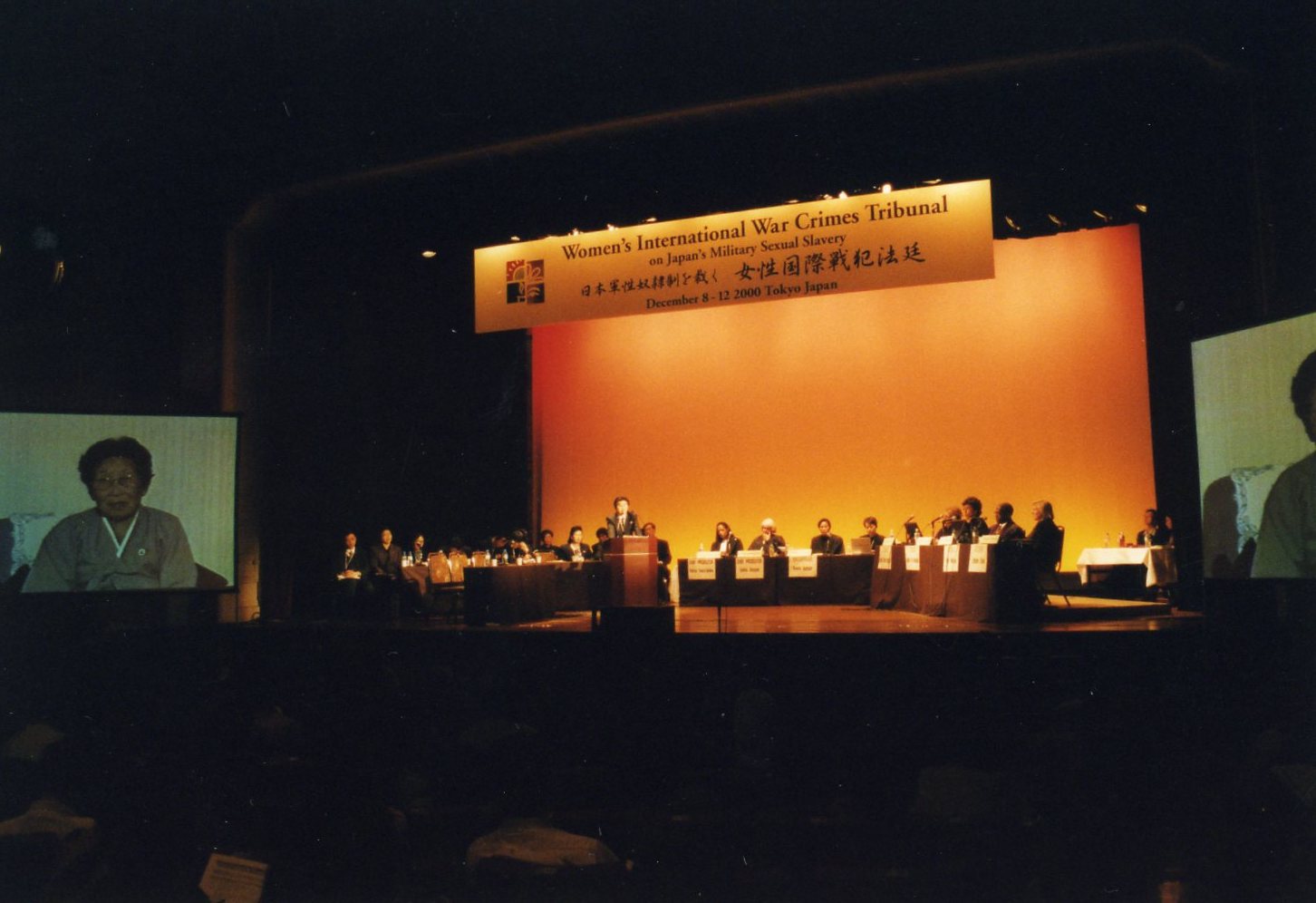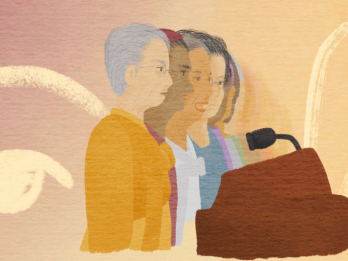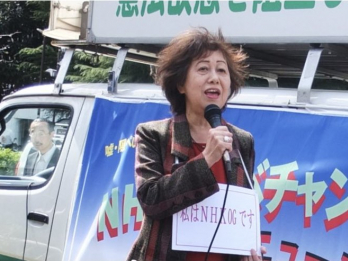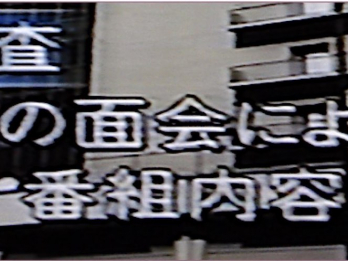Exploring the ‘Women's International War Crimes Tribunal on the Trial of Japan's Military Sexual Slavery in 2000’ through the archives
Written by the webzine KYEOL editorial team
The ‘Women's International War Crimes Tribunal on the Trial of Japan's Military Sexual Slavery in 2000’ (hereinafter ‘Women’s International War Crimes Tribunal 2000’) was held at the Kudan Kaikan Hall in Tokyo, Japan for six days, starting with the opening ceremony on December 7, 2000, until December 12, 2000.
Based on a three-day hearing from December 8 to 10, 2000, the panel of judges for the ‘Women’s International War Crimes Tribunal 2000’ announced on 12 December 2000 a preliminary judgment convicting Emperor Hirohito, acknowledging the abhorrent force used in mobilizing Japanese Military “comfort women” and the violence inflicted on them. Subsequently, a year later on December 4, 2001, a final judgment was reached in The Hague, the Netherlands, which convicted Emperor Hirohito, who was indicted by the group of victimized Asian countries, and recommended that the Japanese government should fully investigate the truth, apologize, provide compensation for the victims, and so on. Since the ‘Women’s International War Crimes Tribunal 2000’ was a private tribunal, the judgment was not legally enforceable, but it still represented a considerably symbolic meaning as it brought forth the issue of the Japanese Military “comfort women” to the tribunal through international solidarity and the power of citizens, and thereby established the need to punish violence against women perpetrated during wartime from the perspectives of the women's human rights and peace.
At 'Archive 814' from the Research Institute on Japanese Military Sexual Slavery’s (RIMSS), you can check on the international prosecution team’s joint bills of indictment for the ‘Women’s International War Crimes Tribunal 2000’, along with the bills of indictment from the two Koreas, China, the Philippines, Taiwan, Malaysia, the Netherlands, Indonesia, and East Timor, as well as a summary of the preliminary judgment, the summary transcripts of the tribunal, and more.
Marking the 20th anniversary of the Women’s International War Crimes Tribunal 2000, the webzine KYEOL introduces the records related to the ‘Women’s International War Crimes Tribunal 2000’ registered in ‘Archive 814’ in the chronological order of the tribunal’s progression.
The first day of the ‘Women’s International War Crimes Tribunal 2000’
Kudan Kaikan Hall in Tokyo, Japan on Friday, December 8, 2000
- Opening of the tribunal (The International Executive Committee)
- Declaration of the tribunal opening (Chief Judge McDonald)
- Opening statement (Chief Prosecutor Patricia Viseur-Sellers)
- Statement by the tribunal witness (Amicus curiae) (Lawyer Imamura Tsuguo)
- Joint indictment and hearing by South and North Korea
- Expert testimony: The structure of the Japanese Army (Hayashi Hiroshi)
The first day of the ‘Women’s International War Crimes Tribunal 2000’ on December 8, 2000 featured the declaration of the tribunal’s opening, the opening statement by Chief Prosecutor Patricia Viseur-Sellers, defense by counsels, and the indictment and statements presented by the South and North Korean joint prosecution team.
Chief Prosecutor Patricia Viseur-Sellers and the prosecution team defined the issue of Japanese Military “comfort women” as crimes against humanity, and indicted Emperor Hirohito, Matsui Iwane, Hata Shunroku, Terauchi Hisaichi, Itagaki Seishiro, Tojo Hideki, Umezu Yoshijiro, Kobayashi Seizo, Ando Rikichi, and Yamashita Tomoyuki. The prosecution team also demanded that the Japanese government disclose the documents related to the Japanese Military “comfort women”, publicly apologize to the victims, and subsequently provide compensation and restitution.
The South and North Korean joint prosecution team also indicted Emperor Hirohito and others for crimes against humanity based on historical data, testimonies from survivors, etc. Also, they specifically compiled and described the crimes involved in the process of operating the “comfort stations”, the violations of international law, and the criminal liability of the defendants for these crimes. The testifiers from the South and North Korean joint prosecution team included Kim Bok-dong (video testimony), Kim Gun-ja, Park Young-sim (video testimony), Ha Sang-sook, Kim Young-sook, Moon Pil-gi, Ahn Beop-soon, Choi Gap-soon (video testimony), Yoo Soon-ok (video testimony), and Chung Ok-soon (video testimony).
The details of the first day of the ‘Women’s International War Crimes Tribunal 2000’ and the testimonies related to the damages to the Japanese Military “comfort women” can be found in the summary of the transcript below. Also, the prosecution team's arguments and the full text of the joint bill of indictment by the two Koreas are extremely useful documents for understanding the Japanese Military “comfort women” issue, as they examine Japan's territorial expansion policy during the war, the status of the defendants, facts on individual crimes, laws applicable to the defendants, etc.
Related record 2. Prosecution team's arguments for the ‘Women's International War Crimes Tribunal on the Trial of Japan's Military Sexual Slavery in 2000’
Related record 3. Joint bill of indictment by South and North Korea for the ‘Women's International War Crimes Tribunal on the Trial of Japan's Military Sexual Slavery in 2000’

The second day of the ‘Women’s International War Crimes Tribunal 2000’
Kudan Kaikan Hall in Tokyo, Japan on Saturday, December 9, 2000
- Expert testimony: The Japanese emperor system (Yamada Akira)
- Indictment and hearing by China's prosecution team
- Indictment and hearing by the Philippine's prosecution team
- Expert testimony: The Japanese Military Sexual Slavery System (Yoshimi Yoshiaki)
- Indictment and hearing by Taiwan's prosecution team
On December 9, the second day of the ‘Women’s International War Crimes Tribunal 2000’, Professor Yamada Akira of Meiji University provided an expert testimony on the Emperor's responsibilities. This was followed by the submissions of the bills of indictment from China’s prosecution team, the Philippines’ prosecution team, and Taiwan’s prosecution team, along with the testimonies from the victims. On behalf of Chinese “comfort women” victims, Wan Aihua, Yuan Zhulin, and Yang Minjun participated as witnesses. In the bill of indictment, China’s prosecution team described the details of the Japanese Army’s occupation process in China, along with the process of installing “comfort stations” in China, and the “comfort stations” that had been established throughout China.
The Philippines’ prosecution team accused Emperor Hirohito and six others, including Homa Masaharu, along with a commander of the Japanese Army in the Philippines, of committing crimes against humanity during the war. Based on the testimonies from the victims, documents from the ‘International Military Tribunal for the Far East (IMTFE)’ and the U.S. Pacific War Crimes Office, etc., the indictment provides the detailed accounts of the Japanese invasion and occupation of the Philippines, the mobilization process of the Japanese Military “comfort women”, and the treatment experienced by the mobilized women.
Taiwan's prosecution team accused Emperor Hirohito along with those who served as Taiwan's Governor General between 1936 and 1945, including Kobayashi Seizo, Hasegawa Kiyoshi, and Ando Rikichi, of crimes against humanity and mobilizing the Japanese Military “comfort women” during Japan's occupation and the colonial rule of Taiwan. In the bill of indictment, Taiwan’s prosecution team specifically described Japan's occupation of Taiwan and the treatment of the Japanese Military “comfort women”, including Taiwanese women mobilized as Japanese Military “comfort women”, and also clarified that the Japanese Military “comfort women” issue was not a special incident that happened during the war, but one that occurred under colonial rule.
Prosecutors from China, the Philippines, and Taiwan also unanimously demanded that the Japanese government fulfill its state responsibility by acknowledging its wrongdoing and delivering an official apology while providing restitutions for the victims.
Related record 2. Bill of indictment by China for the ‘Women's International War Crimes Tribunal on the Trial of Japan's Military Sexual Slavery in 2000’
Related record 3. Bill of indictment by the Philippines for the ‘Women's International War Crimes Tribunal on the Trial of Japan's Military Sexual Slavery in 2000’
Related record 4. Bill of indictment by Taiwan for the ‘Women's International War Crimes Tribunal on the Trial of Japan's Military Sexual Slavery in 2000’
The third day of the ‘Women’s International War Crimes Tribunal 2000’
Kudan Kaikan Hall in Tokyo, Japan on Sunday, December 10, 2000
- Indictment and hearing by Malaysia's prosecution team
- Indictment and hearing by the Netherland's prosecution team
- Indictment and hearing by Indonesia's prosecution team
- Expert testimony: Trauma (Lepa Mladjenovic)
- Japan's prosecution team: The Japanese government's response to the “comfort women” issue after the war (Kawaguchi Kazuko)
- Expert testimony: State responsibility (Fritz Kalshoven)
- Indictment and hearing by East Timor’s prosecution team
- Indictment and hearing by Japan’s prosecution team
- Expert testimony: The Japanese Military “comfort women” (Fujime Yuki)
- Testimony by the Japanese Army’s soldiers: Former Japanese soldiers Kaneko Yasuji, Suzuki Yoshio
- Witness statement: Lawyer Suzuki Isomi, Lawyer Aitani Kunio
- Closing argument
On the morning of December 10, 2000, the third day of the ‘Women’s International War Crimes Tribunal 2000’ featured indictments and hearings by Malaysia's prosecution team, the Netherland's prosecution team, Indonesia’s prosecution team, along with the victims’ testimonies. Malaysia's prosecution team accused the Emperor of Japan, the Japanese government, army honor guards Terauchi Hisaichi, Yamashita Tomoyuki, Itagaki Seshiro and other Japanese Army’s officials, Singapore’s mayor and governors across 10 regions who were serving at the time of war, Madame Chau Chui and her husband Ayong, etc. and other personnel related to the “comfort stations”, of forcibly mobilizing Malaysian women as the Japanese Military “comfort women”. Netherland’s prosecution team indicted Japanese commanders who occupied the Dutch East Indies (now Indonesia) during the war for perpetrating sexual enslavement, torture, and torture by abuse. Indonesia’s prosecution team accused the nine Japanese government and military leaders, including Emperor Hirohito, of committing war crimes and crimes against humanity, such as mobilizing women as Japanese Military “comfort women”, and also stated that the Japanese government was responsible for paying compensation and restitution to the survivors and the descendants of the victims. Jan Ruff-O'Herne (the Netherlands), Eve Suhanah (Indonesia), and Mardiyem (Indonesia) attended as witnesses to testify regarding the damages inflicted to the Japanese Military “comfort women”.
The afternoon of December 10 included expert testimonies on trauma, expert testimonies on the Japanese Military Sexual Slavery System, expert testimonies on Japan's state responsibility, a hearing by East Timor’s prosecution team, testimonies by former Japanese Army’s soldiers, and the closing argument. East Timor’s prosecution team accused the Japanese government of war crimes and crimes against humanity, charging the Japanese government of committing sexual and physical violence by forcibly mobilizing and imprisoning East Timor women as the Japanese Military “comfort women”. Marta (video testimony) and Esmeralda participated as witnesses for East Timor’s prosecution team. The hearing by East Timor’s prosecution team and expert testimonies on the Japanese Military “comfort women” were followed by the perpetrators’ testimonies by former Japanese soldiers Kaneko Yasuji and Suzuki Yoshio. As they had been Japanese soldiers at the time of the crime, they attested that the “comfort women” for soldiers had actually existed. Details of their testimonies are described in the transcripts below.
Finally, the prosecution team rendered the closing argument. International Prosecutor Ustinia Dolgopol mentioned the impressive testimonies shared by the Japanese Military “comfort women” victims who "showed immense courage in the courtroom" and urged the Japanese government to apologize to the victims. The prosecutor also expressed that achieving this would require a fair judgment from the panel of judges. The prosecution team’s joint bill of indictment detailing the “comfort station” system and the defendants' criminal activities were written based on the bills of indictment written by the victimized countries including Taiwan, Korea, China, Indonesia, the Philippines, East Timor, Malaysia, etc.
Related record 2. Transcript summary of the ‘Women's International War Crimes Tribunal on the Trial of Japan's Military Sexual Slavery in 2000’ (December 10, 2000 - 2)
Related record 3. Bill of indictment by Malaysia for the ‘Women's International War Crimes Tribunal on the Trial of Japan's Military Sexual Slavery in 2000’
Related record 4. Bill of indictment by the Netherlands for the ‘Women's International War Crimes Tribunal on the Trial of Japan's Military Sexual Slavery in 2000’
Related record 5. Bill of indictment by Indonesia for the ‘Women's International War Crimes Tribunal on the Trial of Japan's Military Sexual Slavery in 2000’
Related record 6. Bill of indictment by East Timor for the ‘Women's International War Crimes Tribunal on the Trial of Japan's Military Sexual Slavery in 2000’
Related record 7. Bill of the joint indictment by the prosecution team for the ‘Women's International War Crimes Tribunal on the Trial of Japan's Military Sexual Slavery in 2000’
The fourth day of the ‘Women’s International War Crimes Tribunal 2000’
Kudan Kaikan Hall in Tokyo, Japan on Monday, December 11, 2000
- An international public hearing on sexual violence against women perpetrated during modern armed conflicts
On December 11, 2000, an international public hearing was held under the theme of "sexual violence against women perpetrated during modern armed conflicts". The international public hearing had been discussed from the early stage of planning for the ‘Women’s International War Crimes Tribunal 2000’ in an effort to highlight the ongoing nature of the Japanese Military “comfort women” issue and strengthen solidarity between women around the world. As a result, issues relating to women's human rights under conflicts were discussed together during the hearing.
In this international public hearing, victims who experienced violence in the Vietnam War, Burma's military dictatorship, and armed conflicts in Guatemala, Rwanda, and East Timor provided their testimonies, and the participants discussed the possibility that resolving the Japanese Military “comfort women” issue can be a starting point for solving the women's human rights problem during conflicts.
The fifth day of the 'Women’s International War Crimes Tribunal 2000',
The day of the preliminary judgment
Japan Youth Hall in Tokyo, Japan on Sunday, December 12, 2000
- Demands by the International Executive Committee and the international prosecution team
- Preliminary judgment
The preliminary judgment was announced on December 12, the last day of the tribunal. The ‘Women’s International War Crimes Tribunal 2000’ was participated by Gabrelle Kirk McDonald, a former senior judge at the International Criminal Court of former Yugoslavia; Carmen Maria Argibay, Argentina's criminal justice judge and then president of the International Women's Association of Judges; Cristine Chinkin, an expert on gender and international law; and Willy Mutunga, Kenya’s human rights lawyer.
The panel of judges for the ‘Women’s International War Crimes Tribunal 2000’ clearly acknowledged the force used in the mobilization of the Japanese Military “comfort women” and the violence, etc. inflicted on the women, and then declared Emperor Hirohito to be guilty. They also judged that the Japanese government should bear a state responsibility for the establishment and operation of the “comfort stations”.
Related record 2. Judgment summary for the ‘Women's International War Crimes Tribunal on the Trial of Japan's Military Sexual Slavery in 2000’, Tokyo, 2000
The final judgment of the ‘Women’s International War Crimes Tribunal 2000’
Tuesday, December 4, 2001 at Lucent Dans Theatre, The Hague, the Netherlands
The crimes committed against these survivors remain one of the greatest unacknowledged and unremedied injustices of the Second World War. There are no museums, no graves for the unknown “comfort woman”, no education of future generations, and there have been no judgment days for the victims of Japan’s military sexual slavery and the rampant sexual violence and brutality that characterized its aggressive war. Accordingly, through this judgment, this Tribunal intends to honor all the women victimized by the Japanese military sexual slavery system. The judges recognize the great fortitude and dignity of the survivors who have toiled to survive and reconstruct their shattered lives and who have faced down fear and shame to tell their stories to the world and testify before us. Many of the women who have come forward to fight for justice have died as unsung heroes. While the names inscribed in history’s page have been, at best, those of the men who commit the crimes or who prosecute them, rather than the women who suffer them, this judgment bears the names of the survivors who took the stand to tell their stories, and thereby, for four days at least, put wrong on the scaffold and truth on the throne.
- Paragraph 1093~1094 of the Hague Judgment in 2001
The final judgment of the ‘Women’s International War Crimes Tribunal 2000’ took place a year later on 4 December 2001 at Lucent Dans Theatre, The Hague, the Netherlands. Following the preliminary judgment in Tokyo on December 12, 2000 which convicted Emperor Hirohito and declared the Japanese government’s responsibility for compensation, the final judgment acknowledged the characteristics of sexual slavery involved in the Japanese Military “comfort women” system, and Emperor Hirohito was found guilty of being responsible for this crime.
Its judgment also specified that the Japanese government bears a state responsibility, and recommended that the Japanese government should acknowledge and apologize for the operation of the Japanese Military “comfort women” system, set up an organization to investigate the truth, recognize the victims and survivors through the establishment of museums and libraries, and provide compensation for the victims.
Related contents
-

- The “comfort women” victims – Unsung heroes who came forward to fight for justice
-
Marking the 20th anniversary of the ‘Women's International War Crimes Tribunal on Japan's Military Sexual Slavery in 2000’
-

- 일본군 성노예 전범 여성국제법정으로부터 20년을 되돌아보다
-
[2000년 여성법정 20주년 특집] 일본 방송사 NHK의 PD였던 이케다 에리코는 어떤 과정을 거쳐 여성들의 전쟁과 평화자료관의 명예 관장이 되었을까. 그 과정을 담은 글을 통해 '위안부' 문제의 해결과 미래에 대해 생각해본다.
-

- NHK의 프로그램 개찬(改竄)사건에 관하여 (상)
-
[2000년 여성법정 20주년 특집] 2000년 여성법정을 취재한 NHK 방송 ETV2001《전쟁을 어떻게 심판할 것인가》의 제작부터 방영까지 겪었던 우여곡절을 당시 데스크를 담당했던 나가이 사토루의 글로 만나본다.
-
Writer
Editorial Team of Webzine
-
Editorial Team of Webzine <Kyeol>